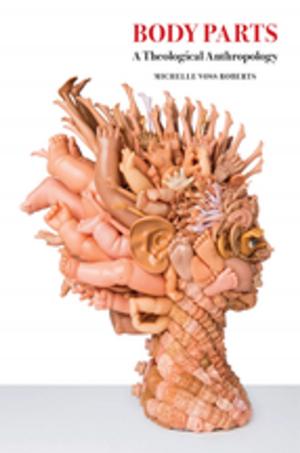Grace in Auschwitz
A Holocaust Christology
Nonfiction, Religion & Spirituality, Judaism, History, Theology, Christianity| Author: | Jean-Pierre Fortin | ISBN: | 9781506405889 |
| Publisher: | Fortress Press | Publication: | October 1, 2016 |
| Imprint: | Fortress Press | Language: | English |
| Author: | Jean-Pierre Fortin |
| ISBN: | 9781506405889 |
| Publisher: | Fortress Press |
| Publication: | October 1, 2016 |
| Imprint: | Fortress Press |
| Language: | English |
The postmodern human condition and relationship to God were forged in response to Auschwitz. Christian theology must now address the challenge posed by the Shoah. Grace in Auschwitz offers a constructive theology of grace that enables twenty-first-century Westerners to relate meaningfully to the Christian tradition in the wake of the Holocaust and unprecedented evil. Through narrative theological testimonial history, the first part articulates the human condition and relationship to God experienced by concentration camp inmates. The second part draws from the lives and works of Simone Weil, Dorothee Solle, Dietrich Bonhoeffer, Alfred Delp, Hans Urs von Balthasar, and Sergei Bulgakov to propose and apply a coherent kenotic model enabling the transposition of the Christian doctrine of grace into categories strongly correlating with the experience of Auschwitz survivors. This model centers on the vulnerable Jesus Christ, a God who takes on the burden of the human condition and freely suffers alongside and for human beings. In and through the person of Jesus, God is made present and active in the midst of spiritual desolation and destitution, providing humanity and solace to others.
The postmodern human condition and relationship to God were forged in response to Auschwitz. Christian theology must now address the challenge posed by the Shoah. Grace in Auschwitz offers a constructive theology of grace that enables twenty-first-century Westerners to relate meaningfully to the Christian tradition in the wake of the Holocaust and unprecedented evil. Through narrative theological testimonial history, the first part articulates the human condition and relationship to God experienced by concentration camp inmates. The second part draws from the lives and works of Simone Weil, Dorothee Solle, Dietrich Bonhoeffer, Alfred Delp, Hans Urs von Balthasar, and Sergei Bulgakov to propose and apply a coherent kenotic model enabling the transposition of the Christian doctrine of grace into categories strongly correlating with the experience of Auschwitz survivors. This model centers on the vulnerable Jesus Christ, a God who takes on the burden of the human condition and freely suffers alongside and for human beings. In and through the person of Jesus, God is made present and active in the midst of spiritual desolation and destitution, providing humanity and solace to others.















